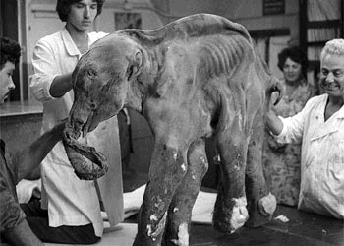- Joined
- Apr 19, 2013
- Messages
- 2,246
- Points
- 63

Not exactly my favorite president and I actually am not a fan of politics but the quote seemed appropriate.
~ LB
Last edited:

Follow along with the video below to see how to install our site as a web app on your home screen.
Note: This feature may not be available in some browsers.




Voted its a bad idea , because the of the cost & benifit , I would rather save a small population in rural 3rd world and beyond where humans are suffering from diseases you dont want to hear , families and generations in the lowest of bmi's and bsa's.. just my opinion!
It's really hypocritical to say you'd rather see the money go to {noble cause inserted here} when we're spending money on lasers that can be considered quite frivolous.
Not really a fair comparison.
The money we spend on lasers is not obtained through taxes, or other public funds.
It's sad that scientific research can be considered a waste of money. As a naturalist, artist, and a young adult studying bio, I find a lot of beauty in science and nature along with some very profound truths. I don't expect everyone to value the same things I do but it sure would be nice if our attitude toward science, math, and the natural world was a little more... respectful? enthusiastic? If anything, it would be nice to at least see some curiosity!
I think one possible alternative solution would be this. Instead of making new mammoths to study them, just study their DNA and allow that to be our research. To bring something to life just to kill it is quite cruel, and whether we killed it directly or allowed nature to do so it is no different.
These great beasts had their age of glory and to bring them back now, to suffer and fail in the current world, would take away the pride and dignity of their species.
I have hesitated on this, but I think I am finally sure in my head that bringing them back would be a mistake. Not for the Jurassic Park effect of having dangerous animals eat us, but because of the ethical responsibilities involved in bringing a species back to life.



